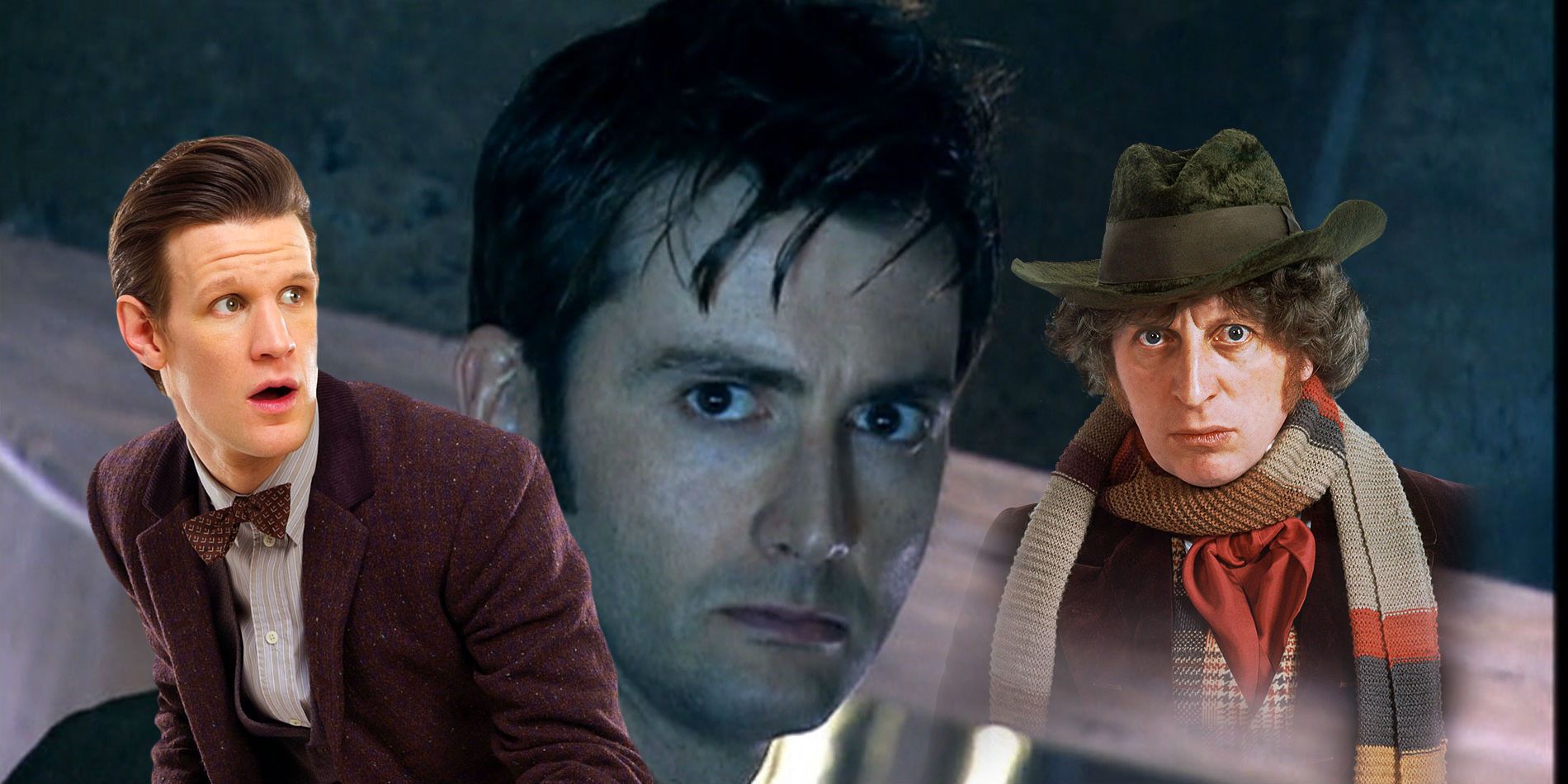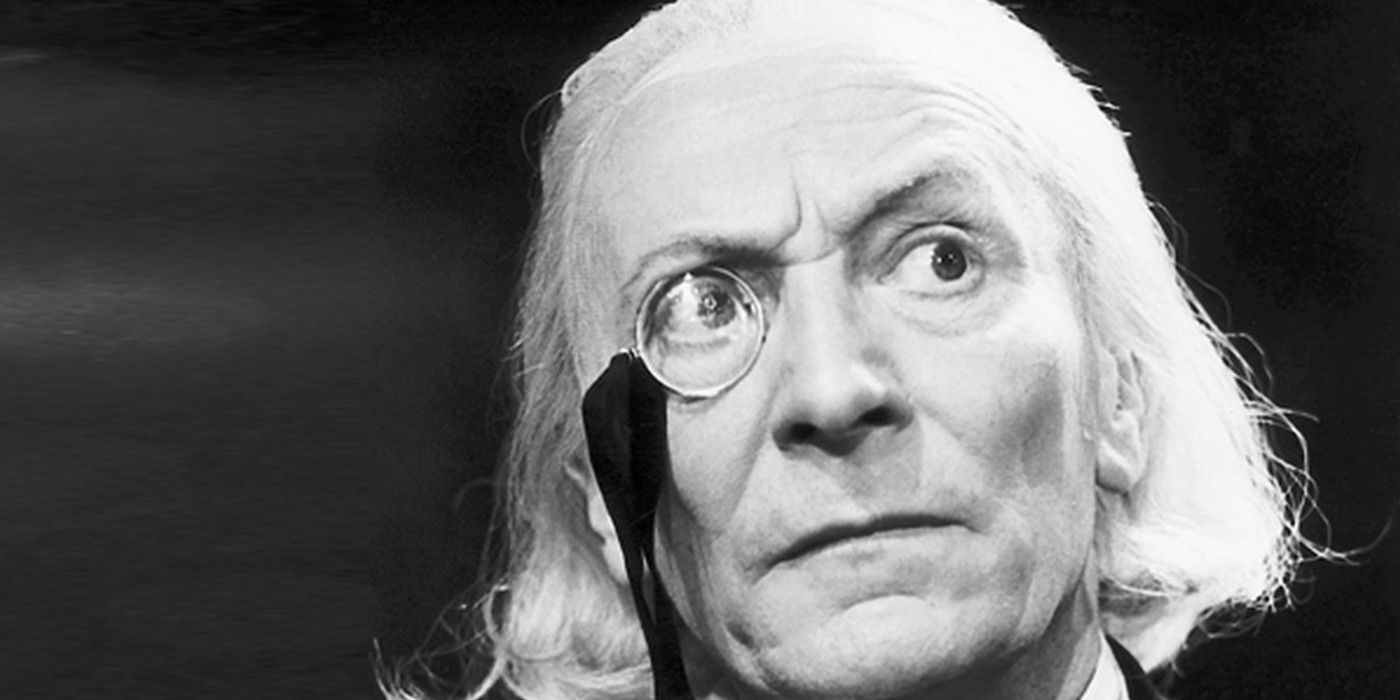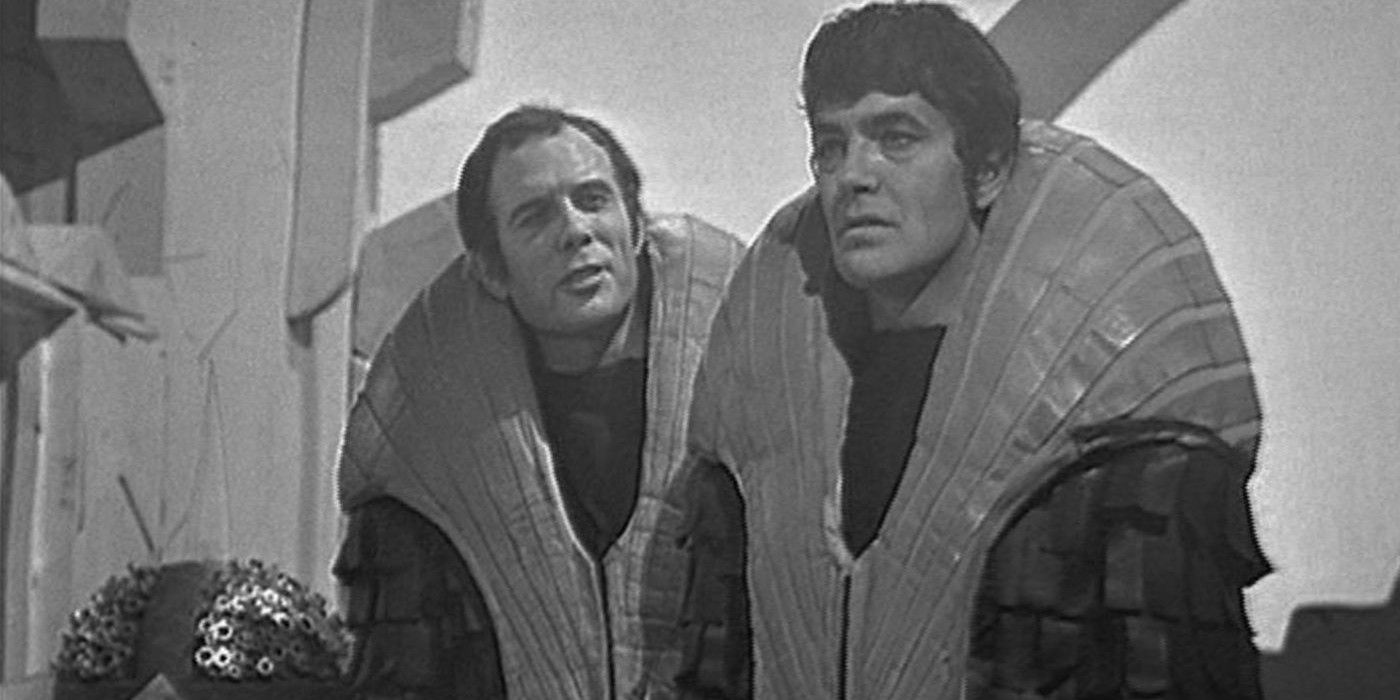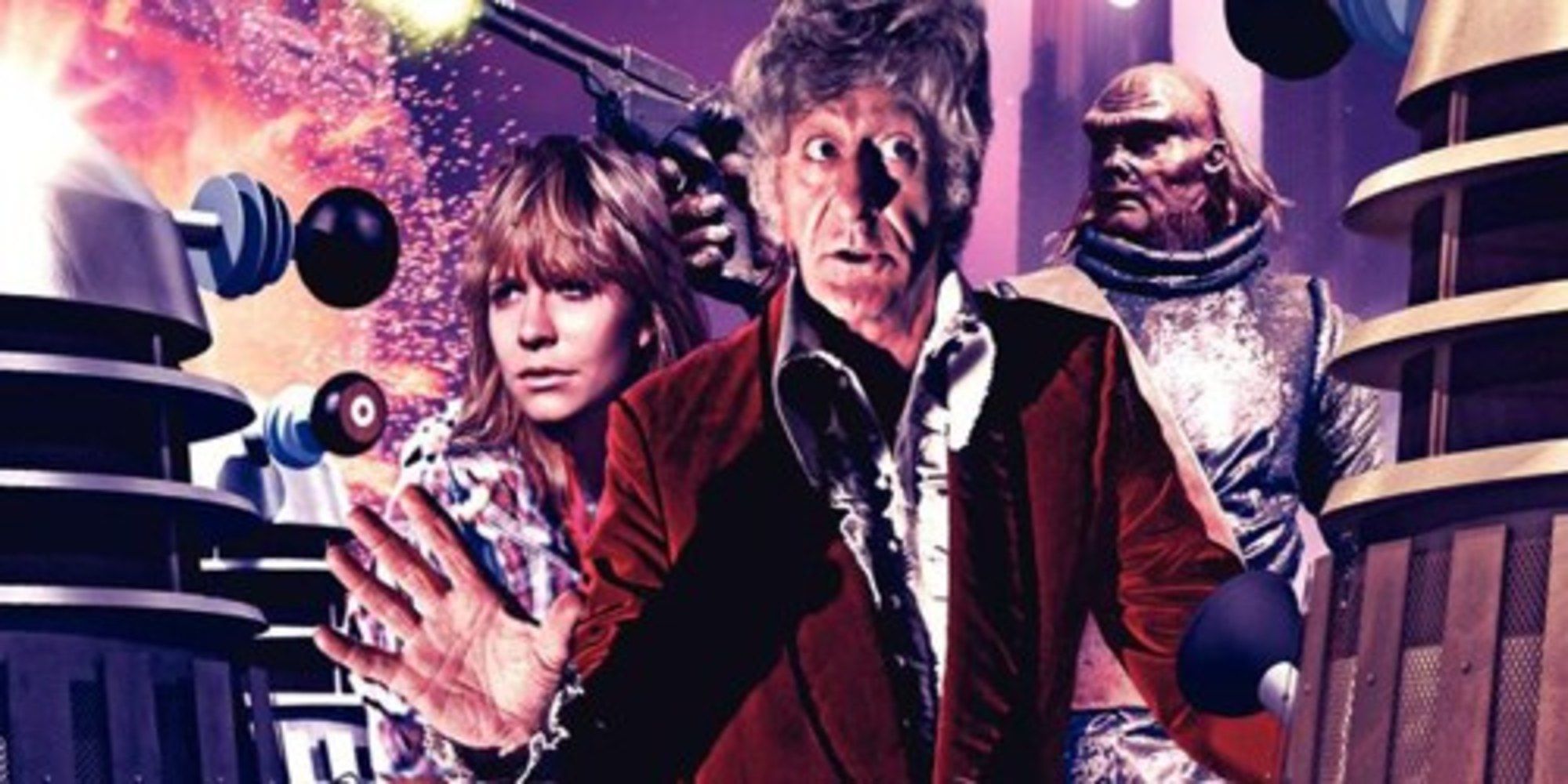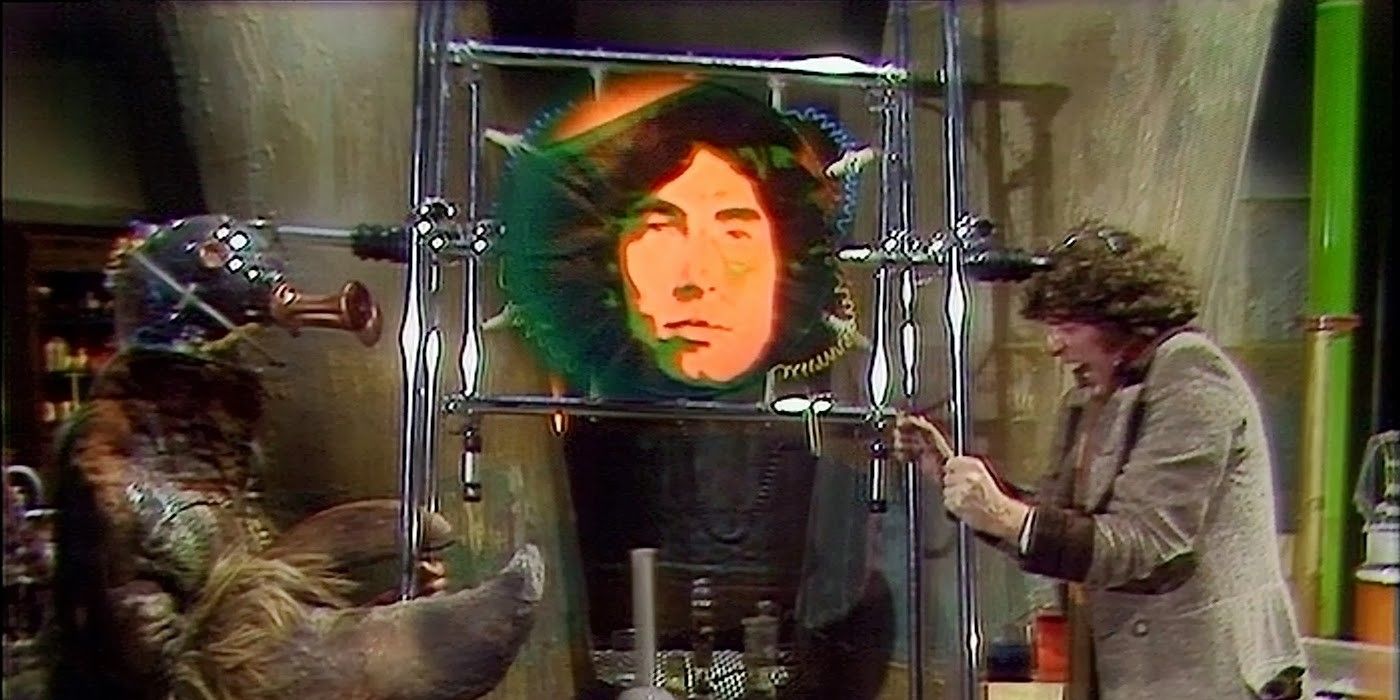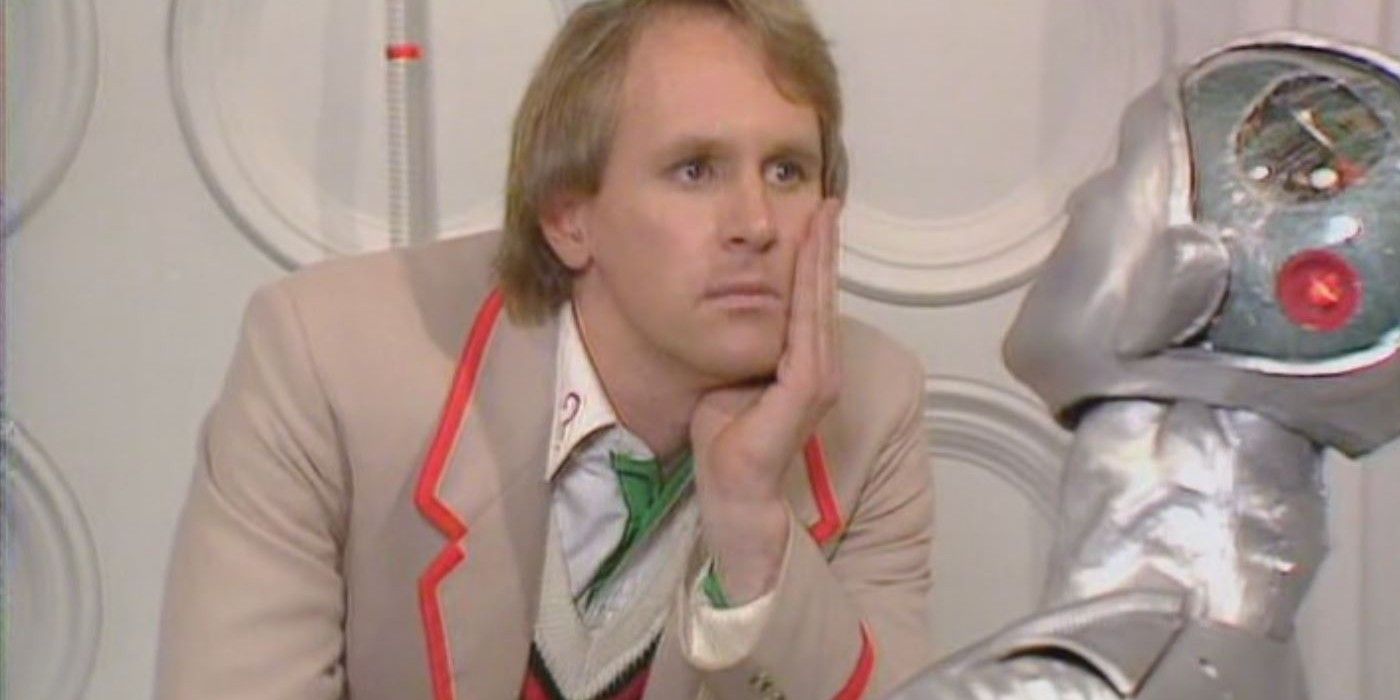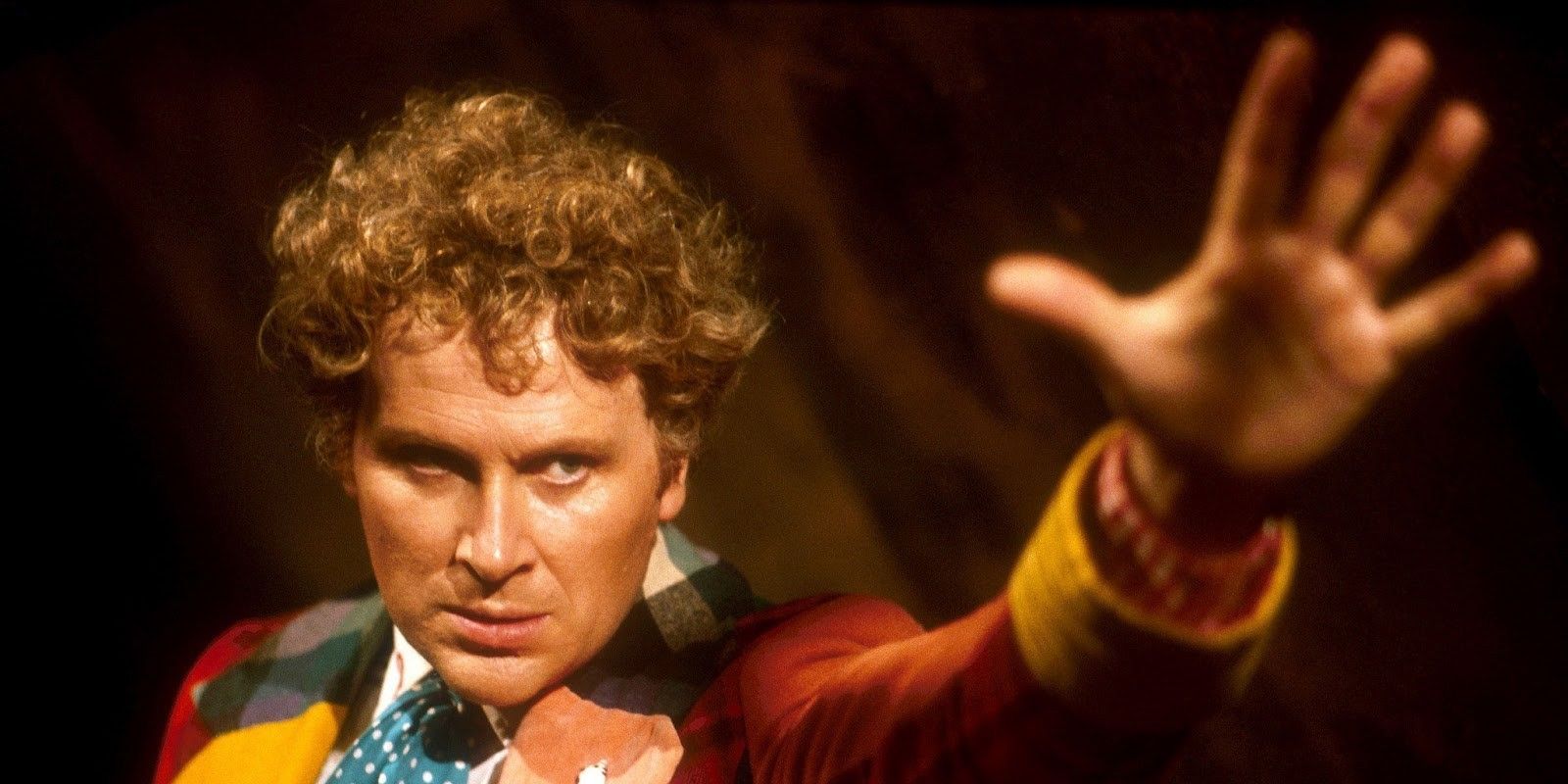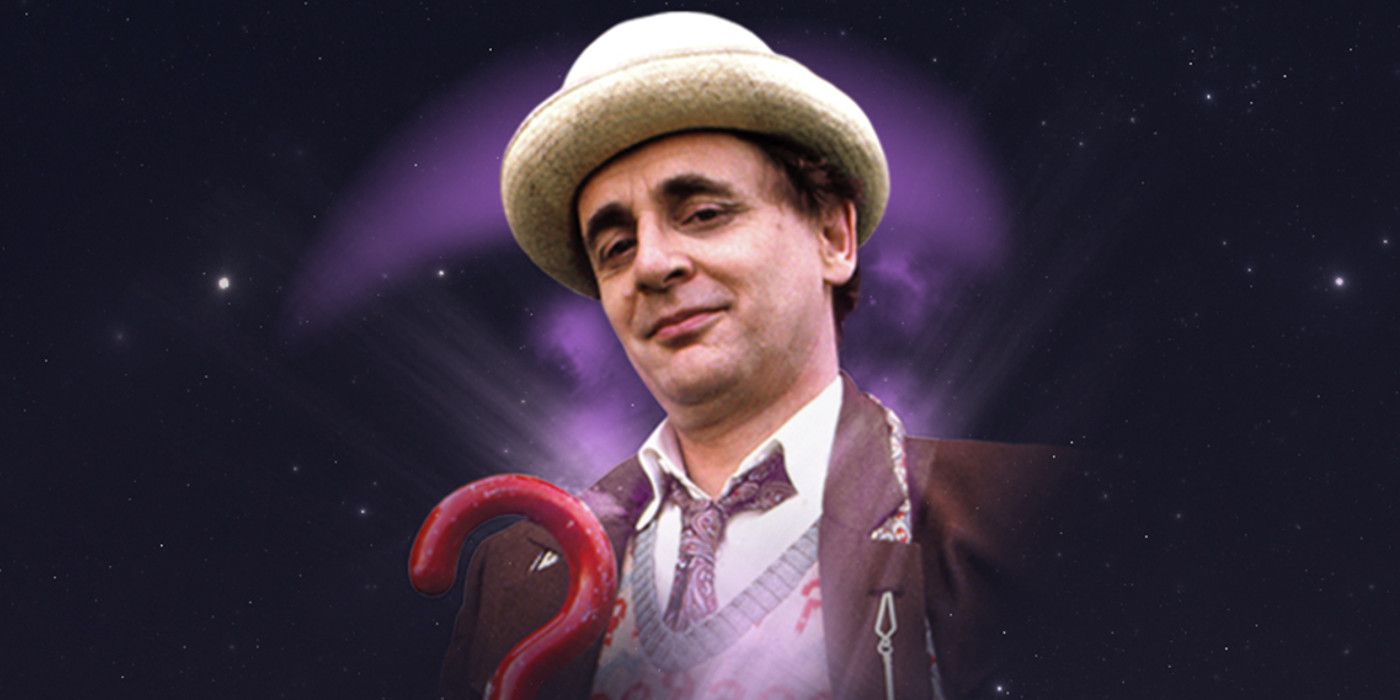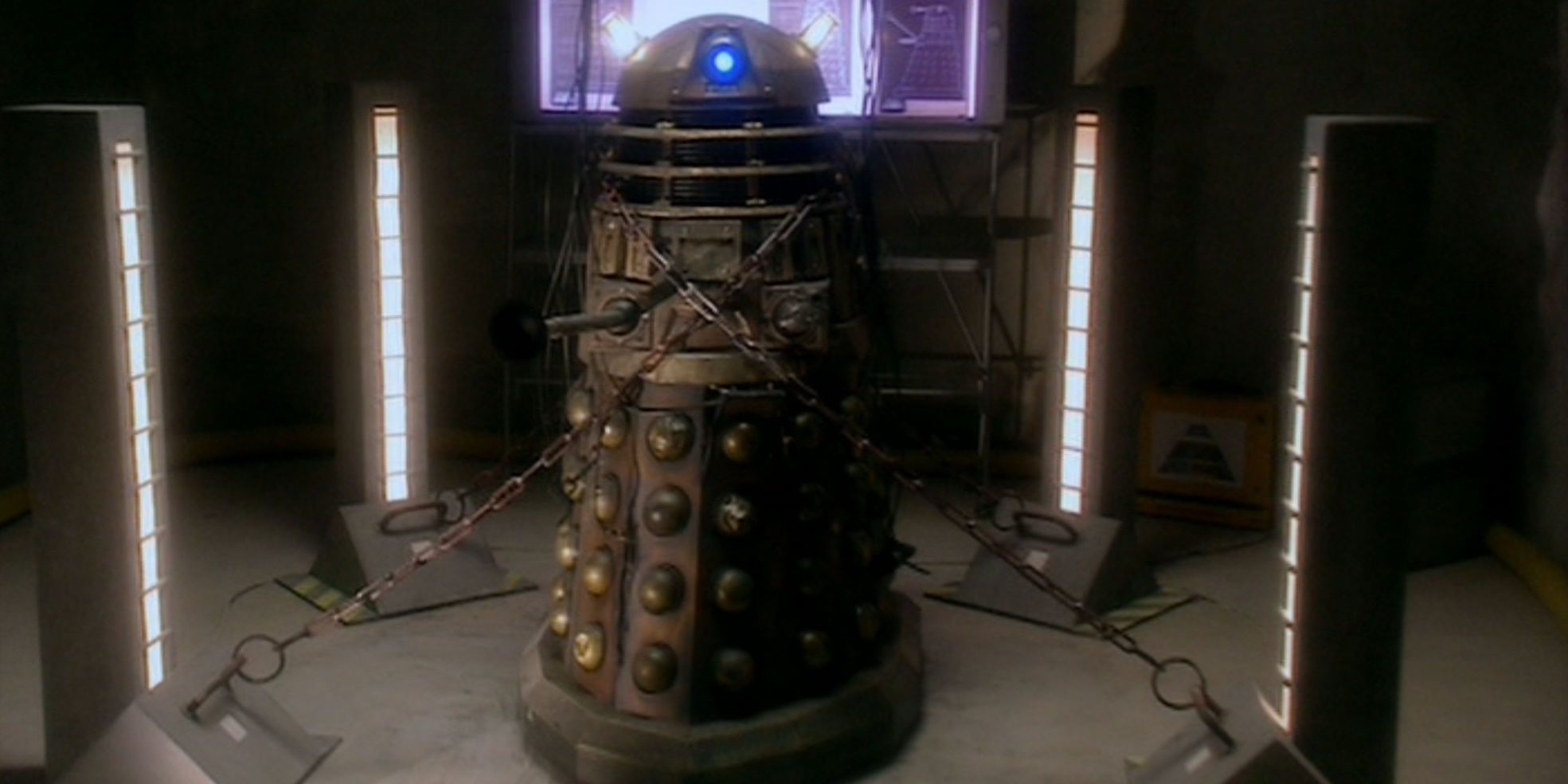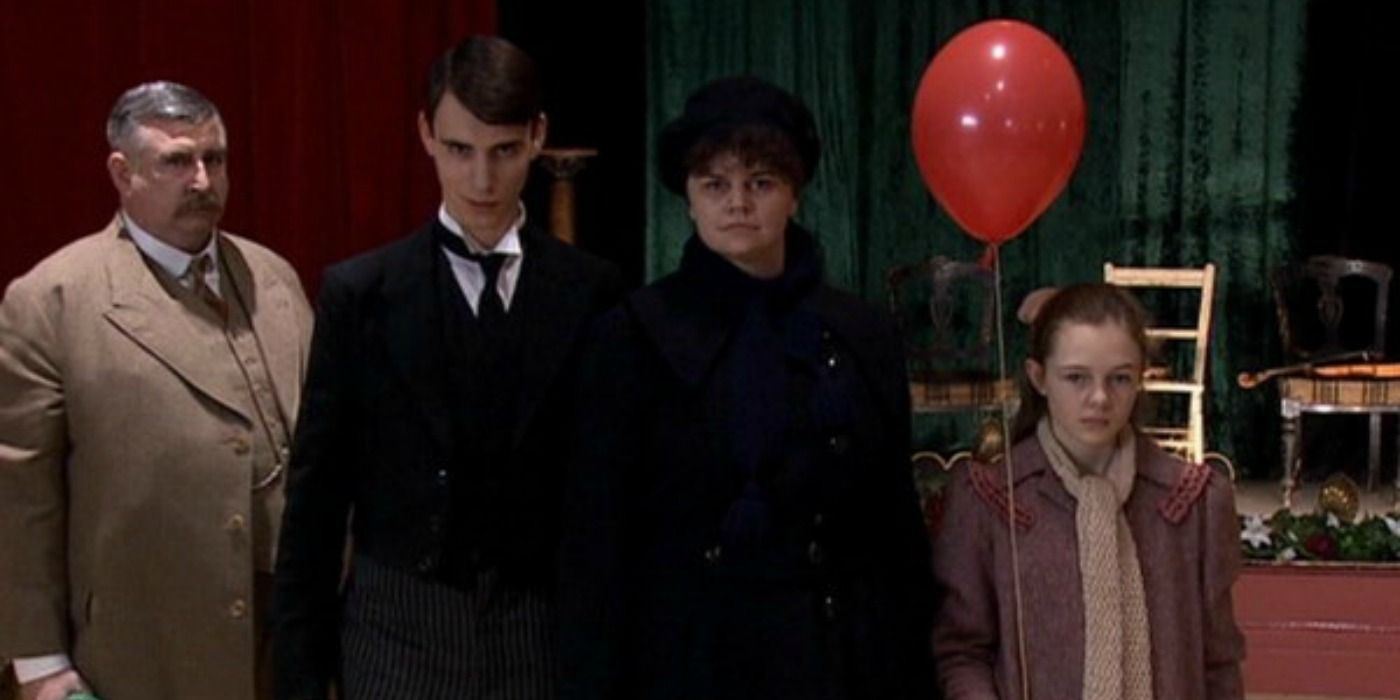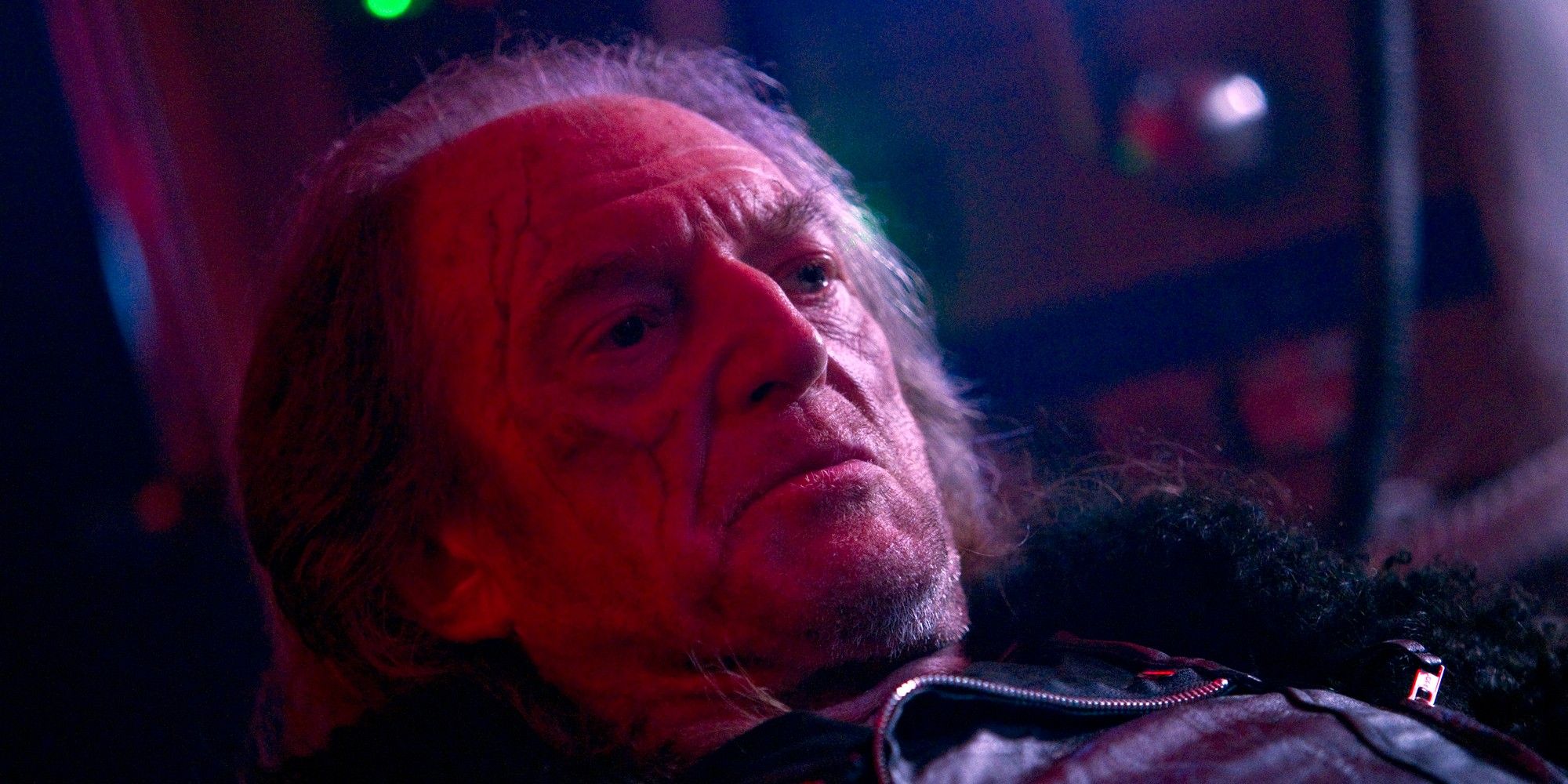Is Doctor Who's lead character really as much of a pacifist as is so often claimed? The key idea at the heart of TV's iconic Doctor is that of an alien who embodies humanity's very best qualities and virtues; an idealized figure defined by courage, kindness, optimism and a thirst for knowledge. In pursuit of this goal, the Doctor always takes the higher path, eschewing violent means in favor of diplomatic alternatives.
The Doctor consistently tries to make peace, even with the most despicable of enemies, and has a Batman-like aversion to firearms. When Paul McGann's Eight Doctor resolved to finally give in and participate in the Time War, he even decided to drop the title of "Doctor" altogether because of the violence his successor would surely be carrying out. The Third Doctor chastised the Brigadier for blowing up the Silurians hiding underneath rural England and the Tenth lost his temper when Harriet Jones (the Prime Minister, if you hadn't heard) attacked the retreating Sycorax ship in "The Christmas Invasion."
Jodie Whittaker's Doctor ramps the holier-than-thou shtick right up to thirteen, regularly showing her displeasure when anyone so much as suggests taking a violent approach to dealing with alien troublemakers. The Doctor's virtuous attitude is now so entrenched within the character's makeup that it's easy to take for granted that the Time Lord has always followed their own rules. This is far from the reality, and the Doctor has regularly resorted to unnecessary acts of violence throughout Doctor Who's long history. While some incidents do make sense in context, the following examples are the clearest betrayals of the Doctor's usual moral code.
The First Doctor Tries To Bludgeon A Caveman To Death
In Doctor Who's very first story, the Time Lord finds himself in the Palaeolithic era of early man and is promptly captured by a nearby cave-dweller. The Doctor, his granddaughter Susan, and accidental companions Ian and Barbara find themselves in the middle of a bitter battle for the leadership of a tribe in which the time travelers' ability to make fire is key. While the other three attempt to gain the trust of the cavemen, the Doctor grabs a rock and tries to bludgeon one of them over the head with it before Ian steps in the way. Not only does the Doctor attempt to attack a native of the era, he then tries to lie his way out of it with some feeble excuse.
This is the most notable example of a number of morally questionable First Doctor moments that include beating people with his cane, hitting a prone, defenseless Frenchman with a spade and inciting the Thals to go to war with the Daleks so that he can pick up some mercury for the TARDIS. The First Doctor even claims to have a gun collection. In fairness, many of these seemingly out-of-character actions can be put down to the Doctor's character still being developed in Doctor Who's early years.
Killing Ice Warriors And Dominators
By the time William Hartnell regenerated into Patrick Troughton, such excuses had become invalid. The Doctor's distaste for violence was now well-established, but the Time Lord was still proving a deadly opponent when the occasion called for a little bloodshed. In "The Seeds Of Death," the Doctor wields a solar device capable of killing Ice Warriors and takes out his frozen opponents with little in the way of moral qualms. This example is especially unusual, since the Doctor had already figured out a way of incapacitating, but not murdering, Ice Warriors using sonic weapons in the villains' eponymous debut story.
In a similar vein, the oft-maligned "The Dominators" ended with the Doctor sneaking the titular invaders' seed weapon back onto their own ship. This in itself isn't necessarily out of character; the Earth was under imminent threat and there was nowhere else the deadly device could go other than back where it came from. The jarring part of this scene is how the Doctor shows no sense of conflict or remorse after seeing the Dominators destroyed. Instead, Troughton's Doctor appears quite pleased with his work.
Shooting An Ogron
With pacifism now an inherent building block in the Doctor's character, it was particularly strange to see Jon Pertwee's Third Doctor not only totting a gun in "Day of the Daleks," but using it to shoot an Ogron, one of the warrior henchmen the Daleks had enslaved. While the Ogrons were certainly villainous in Doctor Who, they were only doing the bidding of their evil plunger-wielding masters and this killing is particularly callous, since it isn't even carried out in self-defense. While never proving fatal to opponents, the Third Doctor was also partial to a little sword fighting and Venusian akido, likely the result of a deliberate attempt by the BBC to modernize the series.
The Action-Hero Fourth Doctor & Solon
Tom Baker's Doctor followed in a somewhat similar vein to his predecessor, preaching the virtues of diplomacy but breaking his own moral code when it proved convenient. In the otherwise-brilliant "The Talons of Weng Chiang," the Doctor takes to walking around with a blunderbuss and uses it to kill a giant rat. Although this assault is made in defense of the Doctor's companion Leela, the sight of the Fourth Doctor exploring while holding a firearm close at hand feels distinctly out of place. In "The Invasion of Time," the Fourth Doctor would also make use of a forbidden Time Lord weapon, the de-mat gun, to nonchalantly kill a Sontaran.
It wasn't just weapons the Doctor was fond of in the late 1970s, but old-fashioned fist fights too. Although this was a hallmark of the era, some of Baker's combat scenes verged on gratuitous for a character supposedly dedicated to peaceful ends via peaceful means, and one particularly action-heavy scene in "The Seeds of Doom" springs to mind, in which the Doctor embarks on an attack Taken's Bryan Mills would be proud of. Perhaps the Fourth Doctor's most heinous moment, however, came when he devised a way to kill Solon, a scientist attempting to resurrect the evil Time Lord Morbius, using deadly gas.
Fifth Doctor, Gunslinger
Much like his predecessor, the Fifth Doctor had a penchant for carrying guns around. In "Earthshock," the Doctor battles against the leader of the Cybermen, managing to incapacitate it by using the gold badge of his companion, Adric. However, while the ailing Cyberman is already close to death, the Doctor picks up a weapon and repeatedly shoots the cyborg for good measure, finishing it off for good. The Doctor also used similarly trigger-happy tactics against Omega in "The Arc of Infinity" and threatened Davros by holding a Dalek gun to his head.
While Cybermen, Davros and Omega are all despicable villains, the Fifth Doctor is also guilty of using a giant UV ray gun to kill the Myrka - a creature that was being used as a tool by the Silurians, and wasn't attacking of its own accord.
An "Accidental" Acid Bath
Like his past incarnation, the Sixth Doctor wasn't afraid of shooting some Cybermen, but he commits a far worse crime in "Vengeance on Varos" by maneuvering a security guard into a deadly vat of acid. While the Doctor may not have pushed his pursuer to a painful death directly, he does immediately quip "you'll forgive me if I don't join you." As with the Second Doctor in the Dominators, this casual attitude to death is grossly out of character for the Doctor compared to the peace-loving personality he exudes 99% of the time. "Vengeance on Varos" contains various other examples of the Doctor's potential for violence, as he sets deadly booby traps and subjects another guard to a powerful laser usually reserved for torturing prisoners.
Destroying Skaro
One of the most important stories in establishing the Doctor's admirable moral position was the Fourth Doctor's "Genesis of the Daleks." Often considered one of the best Doctor Who episodes of all time, Tom Baker's Doctor is sent back in time to prevent the Daleks from ever coming into existence, but ultimately decides that he doesn't have the moral right to wipe out an entire species. This is seemingly forgotten by the Seventh Doctor in "Remembrance of the Daleks." Here, the Doctor rigs the Hand of Omega and then tricks Davros into triggering a supernova that destroys the Dalek homeworld of Skaro.
Even if it is the Daleks, destroying a planet is a significant deviation from the Doctor's usual moral compass, and the events of this episodes are seemingly retconned in later seasons in which Skaro appears to be restored. Oddly enough, this episode originally featured a scene where the Seventh Doctor would've blown up a Dalek using a missile, but Sylvester McCoy himself requested this be dropped because he felt such an act was so out of character.
No Mercy To Daleks
Almost every one of the Doctor's regenerations has, at one time or another, destroyed a Dalek, and this is presented as morally acceptable simply because of how evil the creatures are. The Ninth Doctor demonstrates this lack of mercy better than most in the seminal "Dalek." Believing the race to have been wiped out during the Time War, Christopher Eccleston's Doctor encounters the last remaining Dalek in the universe (for now) and immediately begins panicking about how to destroy it, despite the unit being chained up and helpless. This is undoubtedly a hangover of the Doctor's wartime trauma, and is a deliberate break of character to demonstrate the horrors the Doctor experienced during that conflict.
The Family Of Blood
David Tennant's fantastic "Family of Blood" two-parter saw the Tenth Doctor come up against an evil family of hunters seeking immortality. When the Doctor finally defeats them, his mercy is said to give way to wrath, and the Time Lord hand-picks a punishment worse than death for each member, such as being trapped inside every mirror in existence, thrown into an event horizon and turned into an eternal scarecrow. While these sentences may seem like ways for the Doctor to avoid executing the Family, they're actually designed to be more fitting and excruciating punishments.
Eleven Condemns Solomon To Death
In the otherwise light-hearted romp that is "Dinosaurs On A Spaceship," the Eleventh Doctor commits arguably his most atrocious act of violence. Landing on a Silurian ark, the Doctor comes across Solomon, who had killed the ship's original occupants in order to claim their bounty for his own. Though this sinister character certainly does nothing to deserve the Doctor's kindness, it's still strange that Matt Smith's Doctor deliberately puts a missile homing beacon onto Solomon's ship and then locks the door. Even as the villain begs for mercy and boasts how the Doctor could never be so callous as to kill him in cold blood, Eleven simply reminds Solomon of how the Silurians probably begged for the same courtesy, and weren't afforded it.
Doctor Who season 12 is set to premiere in 2020 on BBC and BBC America.

